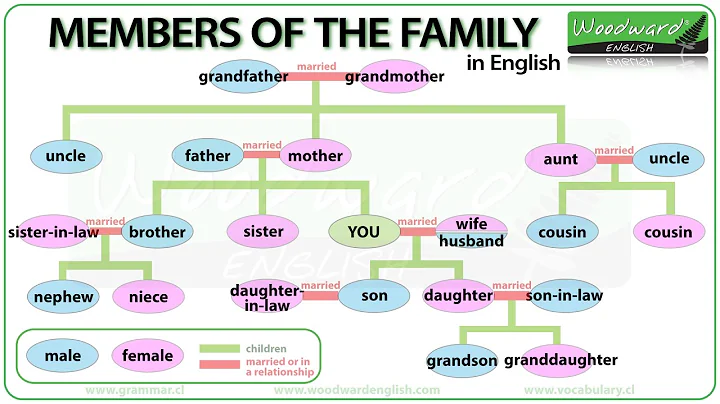
Gu Chengyun
I am a hero, but my son is not necessarily a hero. Many companies stick to blood relationships and lament that there is no one to take over. Compared with professional managers, it is a good choice to choose a son-in-law with excellent abilities in all aspects as a successor. Taiwan Cement Co., Ltd. is such a company.
The second son of the late Straits Exchange Foundation former chairman Gu Zhenfu and Taiwan Cement chairman Gu Chengyun fell from upstairs while attending a friend's wedding banquet at the Regent Hotel in Taipei on January 21 this year. If there is no cure, "let go". In order to help the company tide over the difficulties, the Gu family urgently called on their sons-in-law to come to their aid. Gu Chengyun's sister-in-law and Gu Huairu's husband, Zhang Anping, were ordered to take over TCC and assume the role of "firefighting team".
Lukang Town is the "first wealthy family"
Lukang Town is a fishing port facing the Taiwan Strait in the central part of Taiwan. It was an important port for immigrants from Fujian to cross the strait to Taiwan hundreds of years ago. The Ku family in Lukang has a long history in Taiwan. Since the 13th generation ancestor Ku Rensun moved to Taiwan from Quanzhou, Fujian in the early years of Kangxi in the Qing Dynasty, he has lived in Lukang, Taiwan.

Gu Xianrong is in the middle
The fortune of the Gu family began with Gu Xianrong, Gu Zhenfu's father. Ku Hsien-rong was born in 1866 and started doing business at the age of 21, traveling between Taiwan and major coastal ports. In 1895, after the Qing government signed the humiliating Treaty of Shimonoseki, it was forced to cede Taiwan, the Penghu Islands, etc. to Japan. Japanese troops landed on the islands in Keelung Port, beginning a war against Taiwan that lasted about half a century. of colonial rule. At that time, Koo Hsien-rong, who was slightly famous, was elected as a representative by wealthy businessmen in Dadaocheng, Taipei, and led the Japanese army to peacefully enter Taipei City and helped maintain order in Taipei City. This move by Gu Xianrong was called a "traitor".
Because Gu Xianrong fully cooperated with various measures of Japanese colonial rule, and his conduct was deeply appreciated by the Japanese, he successfully obtained various privileged businesses, established Yamato Trading Company with the permission of the Japanese, and obtained salt, sugar , opium, camphor and other commodities in Taiwan; not only that, Gu Xianrong was also actively engaged in various investments such as land reclamation and finance, which brought the Gu family's business to its peak during the Japanese colonial rule and accumulated a huge amount of money. With huge wealth, he became the richest businessman in Taiwan at that time.
After World War II, Taiwan ended Japanese colonial rule. The Ku family in Lukang was not implicated in being "pro-Japanese". Instead, the family business was smoothly passed down to the second generation Gu Zhenfu, the third generation Gu Liansong uncle and nephew. With the integration and reorganization of people, the business territory of the Gu family has further expanded.
In April 1954, with the support of the Kuomintang authorities in Taiwan, Ku Zhenfu presided over the privatization restructuring of the public enterprise Taiwan Cement Company, opening up a new world for the Ku family industry. Currently, TCC has 16 cement plants, 3 grinding plants, 22 ready-mix plants and a dedicated cement port in Guangdong, Guangxi, Jiangsu, Liaoning, Guizhou, Sichuan, Chongqing, Yunnan, Taiwan and other places.
In the 1960s, the Taiwan authorities vigorously encouraged investment to accelerate economic development. Ku Zhenfu seized the opportunity and led the Ku family from the industrial world to the financial world. Its industries include finance, insurance, securities investment, leasing, real estate, construction development, In many fields including hotels, cement, rubber, department stores, shipping, import and export, electronics, communications, etc., its assets once exceeded US$35 billion, making it the leader among Taiwanese family businesses.
The Gu family separated for the first time
Like other large families, Gu Xianrong also has a group of wives and concubines, and a full house of descendants.He has a total of 8 sons and 4 daughters. Since the first three sons were all adopted or adopted, Gu Yuefu, Gu Liansong's father and the fourth child, is Gu Xianrong's real direct relative eldest son , and Gu Liansong is the actual eldest son and eldest grandson. , his status is unquestionable; but his father died young, causing him to lose support. The young Gu Liansong was discriminated against by other members of the family since childhood. It was only thanks to the careful training of his fifth uncle Gu Zhenfu that he grew up smoothly and became Gu Zhenfu's right-hand man. Assistant, the family's status soared, and the Gu family formed a situation where Gu Liansong, as the eldest grandson, and his fifth uncle Gu Zhenfu entered the family inheritance stage at the same time.

Gu Zhenfu
This special family situation formed the phenomenon of "uncle-nephew partnership". Gu Zhenfu took the whole family into consideration and did not choose his son to inherit the family business. Instead, he designed the "Gu Zhenfu-Gu Liansong-Gu Qiyun" (Gu Zhenfu's eldest son) )-Gu Zhongliang (Gu Liansong’s eldest son)” “Uncle-nephew inheritance” plan to ensure that the family business is in the hands of mature and capable family members.
At the end of 2000, Gu Qiyun was officially diagnosed with liver cancer, and due to investment problems, his personal financial problems surfaced. In order to protect the listed company from being affected, Gu Zhenfu decided to hand over all the financial business systems within the Hexin Group he commanded to his nephew. Gu Liansong took over the management. Soon, Gu Qiyun died of illness, and Gu Zhenfu and Gu Liansong negotiated together. In order to ensure that several listed companies would not be implicated, the two parties reached an agreement to exchange debt for shares, equity conversion, and completely separate the listed companies.
In 2003, the "Hexin Enterprise Group", which had assets of US$35 billion and was founded and managed by Gu Zhenfu, officially separated after more than two years of integration and was divided into "CITIC Group" and "Hexin Group": CITIC Group It is led by Gu Liansong and its main business is finance; Hexin Group is led by Gu Zhenfu and its main business is production.
As a result, the Lukang Gu family completed its first separation, and the "Hexin Enterprise Group" led by Gu Zhenfu entered history. The total assets controlled by the financial holding group controlled by Gu Liansong exceeded that of his fifth uncle Gu Zhenfu The Hexin Group, controlled by one lineage, has grown five times larger and has actually become the true spokesperson and inheritor of the Lukang Gu family.
"CITIC Dynasty" divided into three

Family portrait of Gu Liansong (third from left). From the right, the eldest son Gu Zhongliang, his wife Gu Linruihui, his daughter Gu Zhongyu, his wife Gu Yanbixia, the third son Gu Zhongli, the second son Gu Zhongying
Gu Liansong, the head of the Gu family of CITIC, has three sons, namely Gu Zhongliang, Gu Zhongying and Gu Zhongli. On December 6, 2012, Gu Liansong died of illness in New York, USA. The CITIC Gu family was officially separated and was taken over by his three sons respectively. As the successor, Gu Zhongliang entered CITIC Group's main flagship "CITIC Financial Holdings" and other enterprises, and the second son Gu Zhongying became The youngest son Gu Zhongli, the new owner of industries such as "development of financial holdings", successfully took over the "Chailease" enterprises focusing on overseas businesses and real estate. Since then, the CITIC-Ku family has been divided into three, and the "CITIC Dynasty" has also entered history.
While the Gu family of CITIC is facing a crisis, the industrial-focused "Hexin Group" run by Gu Zhenfu's family is making steady progress. The youngest son Gu Chengyun has successfully resolved the debt crisis and has now aggressively entered the mainland market. The situation is bullish. Gu Chengyun himself entered the Forbes rich list in 2013 with a net worth of US$1.44 billion, and ranked ahead of the CITIC Gu family. It can be said that "Thirty years in the east of the river, thirty years in the west of the river."
Changer Gu Chengyun
When it comes to Gu Chengyun, people always add the attributive phrase "Gu Zhenfu's son" in front of it. Indeed, the Lukang Ku family was once known as the five major families in Taiwan, together with the Banqiao Lin family, Kaohsiung Chen family, Keelung Yan family and Wufeng Lin family. His father, Koo Zhenfu, was one of the important figures in promoting the normalization of cross-strait relations, while his mother, Koo Yanzhuoyun, was the granddaughter of the educator and translator Yan Fu.
In 1982, Ku Chengyun returned to Taiwan after studying in the United States and joined TCC. Starting from planning and implementing the informatization of the company's business and management systems, he completed his career development from grassroots to general manager in ten years.
led the "three-in-one" cement, power generation and port project of Taiwan Cement Heping Cement Plant, which allowed Gu Chengyun to gradually get rid of the shadow of his famous father.The project has an investment of approximately RMB 17 billion. The limestone powder produced by the cement plant is supplied to the desulfurization operation of the power plant. The fly ash produced by the power plant replaces the raw material clay required by the cement plant. The produced desulfurization gypsum is used as a retarder in the cement plant. Cement The coal used in factories and power plants will be purchased under a unified system, and combined with the relatively cheap water transportation in Heping Port, the overall cost will be reduced.

Gu Qiyun (left), Gu Chengyun (right)
In 2001, after his brother Gu Qiyun died of cancer, Gu Chengyun unexpectedly became the successor of TCC.
Taiwan Cement Co., Ltd., with low management efficiency, suffered from sluggish performance in 2001, with gross profit margin of only 2.1%, a record low.
Gu Chengyun, who advocated radical change, was dissuaded by his father who was in poor health. Two years later, in the first half of 2003, Ku Zhenfu resigned as chairman of TCC, and Ku Chengyun was elected as the new chairman. Only then did Gu Chengyun have the opportunity to restart drastic changes and implement "Eagle Management."
In the year when he turned 40, Gu Chengyun had a particularly difficult time. With 5 lawsuits from veterans and employees whose interests were harmed, coupled with his father's deteriorating health, and facing internal and external difficulties, Koo Chengyun chose to compromise by slowing down changes.
At the end of 2004, TCC's gross profit margin rebounded to 10.99%. Gu Chengyun not only made the pie bigger, but also distributed it well, and Taiwan Cement regained its vitality. Ku Chengyun took advantage of the victory and formulated four major business strategies for TCC - taking root in Taiwan, cultivating deeply in South China, clarifying the main business, and transforming the enterprise. Taiwan Cement has become the top three cement manufacturers in mainland China. Taiwan Cement's three-in-one model, waste recycling, environmental protection and efficiency are both priorities, making it an environmental model for the global cement industry.
The inheritance of Taiwan Cement

Zhang Anping and Ku Huairu
Zhang Anping is the son of Zhang Minyu, the founder of Taiwan Jiaxin Cement. He is currently the CEO of Yunlang Tourism Group, which owns five major hotel brands including Junpin, Yunpin, Hanpin, Zhaopin and CITIC. , he began to receive education in the United States at the age of 14. In 1978, he married Gu Zhenfu's youngest daughter, Gu Huairu, and returned to Taiwan to take over as the deputy general manager of Jiaxin Cement. After Gu Qiyun, Gu's eldest son, died of illness in 2001, Zhang Anping joined Hexin Group to assist Gu Chengyun at the request of his father-in-law Gu Zhenfu and served as the vice chairman of TCC.
In 2011, Zhang Anping's brothers and Zhang Yongping were involved in insider trading. Zhang Anping took over the post of chairman of Jiani to put out the fire. After successfully surviving the transition period, he handed over the position to Zhang Yongping's son Zhang Ganglun. Zhang Anping was ordered to go to the front of the line many times when he was in danger. Now that Gu Chengyun has passed away, TCC once again sent Zhang Yongping to take action, hoping to effectively stabilize the morale of the military.





















